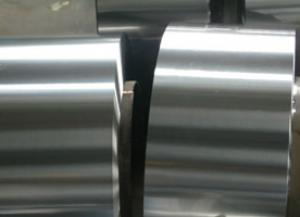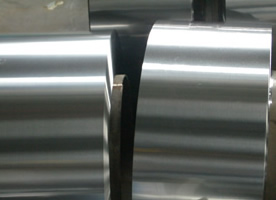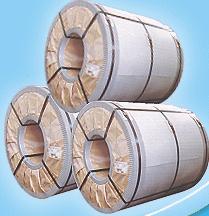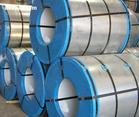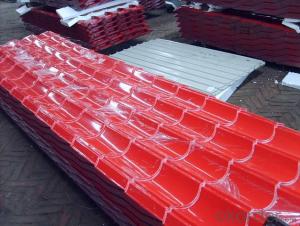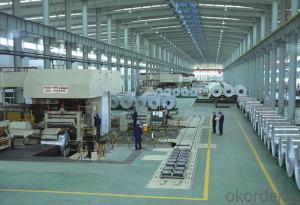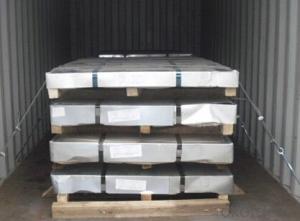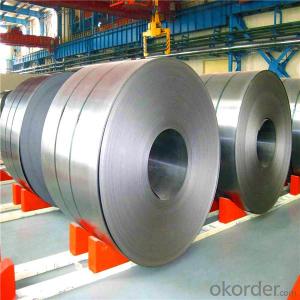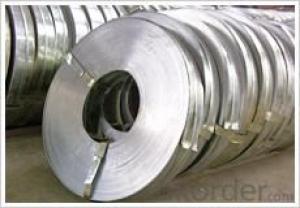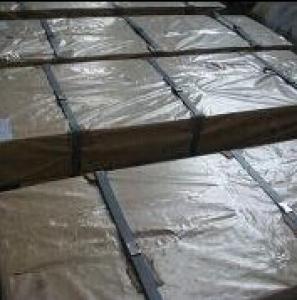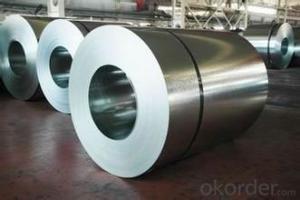Cold Rolled Steel Coil
- Loading Port:
- China Main Port
- Payment Terms:
- TT OR LC
- Min Order Qty:
- -
- Supply Capability:
- -
OKorder Service Pledge
Quality Product, Order Online Tracking, Timely Delivery
OKorder Financial Service
Credit Rating, Credit Services, Credit Purchasing
You Might Also Like
Quick Details
| Place of Origin: | China (Mainland) | Model Number: | SPCC/SPCD/SPCE/ST12 | Material: | Steel |
Specifications
Our company have all kinds of standard with high- precision surface, and has been praised by foreign customers.
Grade - Cold Rolled Coil:
SPCC/SPCD/SPCE/ST12-15
Q195/Q235
DC01-06
Size: Thickness: 0.25-4.0mm Width:600-2000mm
Length: Any Length
- Q: What is the AISI grade of mild steel that is the most magnetic? What magnetic steels are the cheapest and easiest to buy?
- Silicon steel is the most magnetic material for making into transformer cores and motor cores. It contains 1.25 to 2.5% Silicon. Silicon steel is usually rolled to 2mm plates as lamination material. Iron may be magnewtic but it has low resistivity. With high silicon alloyed to iron resistivity is increased and core and hysteres are losses reduced. Important silicon steels are designated as AISI M15, M19,M22 and M36. In ASTM, these steels are designated 36F15, 36F18 and many more.
- Q: What are the different coil leveling methods used for steel coils?
- There are several coil leveling methods used for steel coils, each with its own benefits and limitations. Here are some of the most common methods: 1. Roller Leveling: In this method, steel coils are passed through a series of rollers that apply pressure to flatten and level the coils. Roller leveling is effective in reducing coil crown or center buckle, and it can also help eliminate coil memory. However, it may not be suitable for coils with severe shape defects or variations. 2. Stretch Leveling: This method involves stretching the steel coils to remove any shape defects. The coils are passed through a series of gripper heads that hold the edges of the coil while it is stretched. Stretch leveling is particularly effective in correcting crossbow and edge wave defects. However, it may cause some elongation and yield loss in the material. 3. Temper Pass: This method involves passing the steel coils through a series of temper mill stands, where they are subjected to tension and compression forces. Temper pass leveling helps improve flatness and remove coil memory. It is commonly used for thinner gauge steel coils but may not be suitable for thicker coils. 4. Corrective Leveling: This method is used for coils with severe shape defects. It involves selectively removing material from specific areas of the coil to correct the shape. Corrective leveling is a labor-intensive process that requires skilled operators, but it can effectively eliminate shape defects and improve flatness. 5. Tension Leveling: In this method, the steel coils are subjected to tension forces while being passed through a series of pinch rolls. Tension leveling helps remove coil memory and improve flatness. It is particularly effective for coils with edge wave defects. However, it may cause some elongation and yield loss in the material. These are just a few of the coil leveling methods used for steel coils. The choice of method depends on the specific requirements of the steel coils and the desired flatness results. It is important to consider factors such as material thickness, shape defects, and production capacity when selecting the appropriate leveling method.
- Q: What is the cost of steel coils?
- The cost of steel coils can vary depending on factors such as size, quality, and market conditions. It is best to contact a supplier or check current market prices to get an accurate cost.
- Q: How are steel coils used in the production of wind turbine components?
- Steel coils are used in the production of wind turbine components for their strength and durability. These coils are typically formed into various shapes and sizes to create structural elements such as towers, frames, and foundations. The steel coils are also used to manufacture critical parts like rotor blades, gearboxes, and generator housings, ensuring the turbines withstand harsh environmental conditions and operate efficiently.
- Q: How are steel coils used in the production of construction materials?
- Steel coils are commonly used in the production of construction materials due to their strength, durability, and versatility. These coils are typically made from high-quality steel and are formed into a continuous, cylindrical shape. In the production of construction materials, steel coils are used in various ways. One primary application is in the manufacturing of steel beams, which are essential components in the construction of buildings, bridges, and other structures. Steel coils are processed and shaped into the desired size and dimension, allowing them to be easily formed into beams that can withstand heavy loads and provide structural support. Another important use of steel coils in construction materials is in the production of roofing materials. These coils are often transformed into corrugated sheets, which are widely used as roofing panels. The durability and weather resistance of steel make it an ideal choice for protecting buildings from the elements, including rain, snow, and strong winds. Additionally, these steel coils can be coated with protective layers to enhance their longevity and prevent corrosion. Steel coils are also employed in the production of construction materials such as pipes, tubes, and poles. These coils are formed into the desired shape and size, allowing for the creation of strong and reliable components for infrastructure projects. Whether it is for underground pipelines, structural support systems, or utility poles, steel coils provide the necessary strength and durability required for these construction materials. Furthermore, steel coils play a crucial role in the production of construction materials used in the fabrication of various fixtures and fittings. From door frames and window frames to reinforcement bars and wire mesh, steel coils are processed and shaped to meet specific requirements. This versatility allows for the creation of a wide range of construction materials that are essential for the completion of buildings and infrastructure projects. In conclusion, steel coils are extensively used in the production of construction materials due to their strength, durability, and versatility. From steel beams and roofing materials to pipes and fixtures, these coils are transformed into various shapes and sizes to meet the specific needs of construction projects. The use of steel coils ensures that construction materials are strong, reliable, and capable of withstanding the demands of the built environment.
- Q: Can steel coils be cut to length?
- Yes, steel coils can be cut to length.
- Q: hey therejust wondering about changing nylon strings to steel strings...i have an acoustic guitar and it has nylon strings, but i was thinking about switching to steel strings, as i think it sounds better.this might sound really stupid... but is that possible? i mean they call it a steel stringed GUITAR and nylon stringed GUITAR, so if i wanted to switch would i have to get a whole new guitar? please help, im reaaally confused!thanks
- Steel strings can't go on nylon stringed guitars. So, yes, you have to buy a new guitar.
- Q: should I shoot Herters .308 steel cased ammo in my Remington 7400.and why shouldn't I?
- I shouldn't have an R-25, however probabilities are that when you use metal cased ammo in it you are going to sometimes handle stuck instances. That's the rate you pay for the cheap ammo. As a rule when a case sticks without problems tapping the butt firmly on the ground then pulling the charging handle will dislodge and eject the case. It can pay to invariably have a cleaning rod with you, if the above repair does not work, you push the case out with the rod.
- Q: Can steel coils be coated with impact-resistant materials?
- Yes, steel coils can be coated with impact-resistant materials. These coatings provide an additional layer of protection to the steel coils, making them more resistant to impact damage.
- Q: Does aluminum or steel hold up better? We found a steel for 1/2 the price of aluminum, obviously its heavier but any other downsides? rust faster ect? also, does anybody know, in PA do you pay sales tax on trailers? and do dealers normally give you license plates to get the trailer home with? we live 3 hours away from the dealer so thats why i want all details :) would stink if i messed up!!
- I have a steel trailer. It's okay but I think next time I'll go for aluminum because mine is rusting, particularly on the tongue, so the hitch gets all frozen up. Drives me nuts. Yeah, you pay sales tax on trailers and the dealership SHOULD give you temporary plates to get home, just like they do on vehicles.
Send your message to us
Cold Rolled Steel Coil
- Loading Port:
- China Main Port
- Payment Terms:
- TT OR LC
- Min Order Qty:
- -
- Supply Capability:
- -
OKorder Service Pledge
Quality Product, Order Online Tracking, Timely Delivery
OKorder Financial Service
Credit Rating, Credit Services, Credit Purchasing
Similar products
Hot products
Hot Searches
Related keywords
